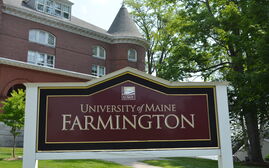Processing Your Payment
Please do not leave this page until complete. This can take a few moments.
- News
-
Editions
-
- Lists
-
Viewpoints
-
Our Events
-
Event Info
- Business Leaders of the Year Reception 2025
- Women's Leadership Forum 2025
- On the Road with Mainebiz in Bethel
- Health Care Forum 2025
- On The Road with Mainebiz in Greenville
- On The Road with Mainebiz in Waterville
- Small Business Forum 2025
- Outstanding Women in Business Reception 2025
- On The Road with Mainebiz in Bath
- 60 Ideas in 60 Minutes Portland 2025
- 40 Under 40 Awards Reception 2025
- On The Road with Mainebiz in Lewiston / Auburn
- 60 Ideas in 60 Minutes Bangor 2025
Award Honorees
- 2025 Business Leaders of the Year
- 2024 Women to Watch Honorees
- 2024 Business Leaders of the Year
- 2023 NextUp: 40 Under 40 Honorees
- 2023 Women to Watch Honorees
- 2023 Business Leaders of the Year
- 2022 NextUp: 40 Under 40 Honorees
- 2022 Women to Watch Honorees
- 2022 Business Leaders of the Year
-
-
Calendar
-
Biz Marketplace
- News
- Editions
- Lists
- Viewpoints
-
Our Events
Event Info
- View all Events
- Business Leaders of the Year Reception 2025
- Women's Leadership Forum 2025
- On the Road with Mainebiz in Bethel
- Health Care Forum 2025
- On The Road with Mainebiz in Greenville
- + More
- On The Road with Mainebiz in Waterville
- Small Business Forum 2025
- Outstanding Women in Business Reception 2025
- On The Road with Mainebiz in Bath
- 60 Ideas in 60 Minutes Portland 2025
- 40 Under 40 Awards Reception 2025
- On The Road with Mainebiz in Lewiston / Auburn
- 60 Ideas in 60 Minutes Bangor 2025
- - Less
Award Honorees
- 2025 Business Leaders of the Year
- 2024 Women to Watch Honorees
- 2024 Business Leaders of the Year
- 2023 NextUp: 40 Under 40 Honorees
- 2023 Women to Watch Honorees
- 2023 Business Leaders of the Year
- + More
- 2022 NextUp: 40 Under 40 Honorees
- 2022 Women to Watch Honorees
- 2022 Business Leaders of the Year
- Nomination Forms
- Calendar
- Biz Marketplace
Saint Joseph's lands five-year grant to boost STEM scholarships
 Courtesy / Saint Joseph's College
Saint Joseph's College's science department includes majors in biochemistry, biology, chemistry, environmental science and marine science with additional offerings in ecology, geology and climate change. A five-year $647,000 grant from the National Science Foundation will help the college fund a science scholars program for qualifying students interested in pursuing careers in the STEM fields.
Courtesy / Saint Joseph's College
Saint Joseph's College's science department includes majors in biochemistry, biology, chemistry, environmental science and marine science with additional offerings in ecology, geology and climate change. A five-year $647,000 grant from the National Science Foundation will help the college fund a science scholars program for qualifying students interested in pursuing careers in the STEM fields.
Saint Joseph’s College plans to use a five-year, $647,000 grant from the National Science Foundation to fund a science scholars program for students with a demonstrated need of financial assistance who are interested in pursuing careers in the STEM fields.
The award from the S-STEM NSF program is unique to the state this year and the largest of its kind in Maine to date. The grant provides scholarship aid ranging from $5,000 to $7,200 per year for each of the recipient’s four years in college.
The first group of students to be enrolled in Saint Joseph’s College Science Scholars Program will be selected from first-year students entering in the fall of 2018 who are committed to studying in a range of science fields, including chemistry, biology, environmental science, biochemistry and marine science.
“This National Science Foundation grant allows us to recruit and graduate some of the best science students from New England and beyond,” Saint Joseph’s President James Dlugos said in a news release. “With these funds, we can offer greater access to higher education in the sciences, offer an innovative approach to science career development and help meet the growing workforce needs in STEM fields. Since the college has built new science laboratories this past year, it’s an opportune time for students to consider studying science at Saint Joseph’s College.”
In addition to the four year scholarships, students in the program will receive:
- A one-week field experience prior to the freshman fall
- Use of a laptop for four years
- Science Scholar seminars, conferences, and research experiences
- Support from faculty and upperclassmen mentors.
Steven Jury, assistant professor of biology and principal investigator on the grant, said the grant will enhance the college’s ability to recruit excellent science students with diverse backgrounds.
“With our access to Sebago Lake, the Gulf of Maine, the White Mountains and coastal estuaries, Saint Joseph’s College students not only study science, but will work as a community of scientists in the lab and field,” he said. “We’re confident that our Science Scholars program can serve as a model for other programs across the country.”
“Nationally, there is a shortage of critical thinkers and problem solvers in the science fields,” added Johan Erikson, associate professor of environmental sciences and co-principal investigator. “We are trying to address this by creating a new model for science education at the college level.”
Saint Joseph’s College’s science department includes majors in biochemistry, biology, chemistry, environmental science and marine science with additional offerings in ecology, geology and climate change.














Comments